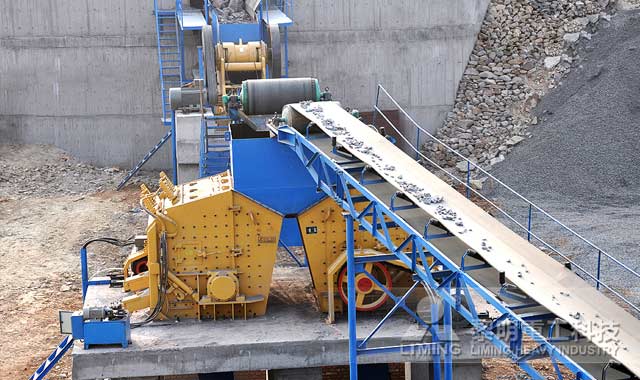A mining crusher plays a crucial role in the granite processing industry by breaking down large pieces of granite into smaller, more manageable sizes. This process enables the extraction of valuable granite resources and ensures efficient utilization of this durable and aesthetically pleasing stone. In this article, we will explore the significance of mining crushers in granite processing.
Granite, a type of igneous rock formed from the crystallization of magma, is widely used in construction, architecture, and various other industries. However, before granite can be used for these applications, it needs to undergo a series of processing stages, including mining, crushing, and grinding. Among these stages, the mining crusher takes center stage as it is responsible for transforming large granite rocks into smaller particles.
The primary function of a mining crusher in granite processing is to break down the granite rocks into fragments of a specific size. This size reduction process is achieved through mechanical force, usually exerted by a jaw crusher, cone crusher, or impact crusher. The choice of crusher depends on various factors such as the desired final product size, the hardness of the granite, and the production capacity required.

Jaw crushers are commonly used as primary crushers in granite processing plants. They are designed to handle large rocks and are capable of producing a uniform product size. The rocks are fed into the crusher’s chamber, where a stationary jaw exerts force against the moving jaw, causing it to compress the rocks until they break into smaller pieces. These smaller pieces can then be further processed by secondary crushers.
Cone crushers are often used as secondary or tertiary crushers in granite processing plants. They operate by squeezing the granite between an eccentrically rotating cone and a stationary bowl liner. This action produces finer particles and is particularly useful for producing high-quality aggregates used in construction projects.
Impact crushers, on the other hand, are versatile machines that can be used in both primary and secondary crushing stages. They utilize the principle of impact to crush the granite rocks. A high-speed rotor strikes the rocks, causing them to break apart upon impact. Impact crushers are known for their ability to produce excellent shaped aggregates with good particle size distribution.
Once the granite rocks are crushed into smaller sizes, they can be further processed through grinding and screening operations to achieve the desired specifications. Grinding involves the use of mills or crushers to reduce the size of the particles even further, while screening separates the crushed granite into different size fractions.
In conclusion, mining crushers are essential equipment in the granite processing industry. They play a vital role in breaking down large granite rocks into smaller, more manageable sizes, facilitating the extraction and utilization of this valuable resource. Whether it’s a jaw crusher, cone crusher, or impact crusher, the choice of the crusher depends on factors such as the desired final product size and the production capacity required. By employing these crushers, the granite industry can efficiently process granite and supply various industries with the durable and versatile material they need for construction and other applications.
